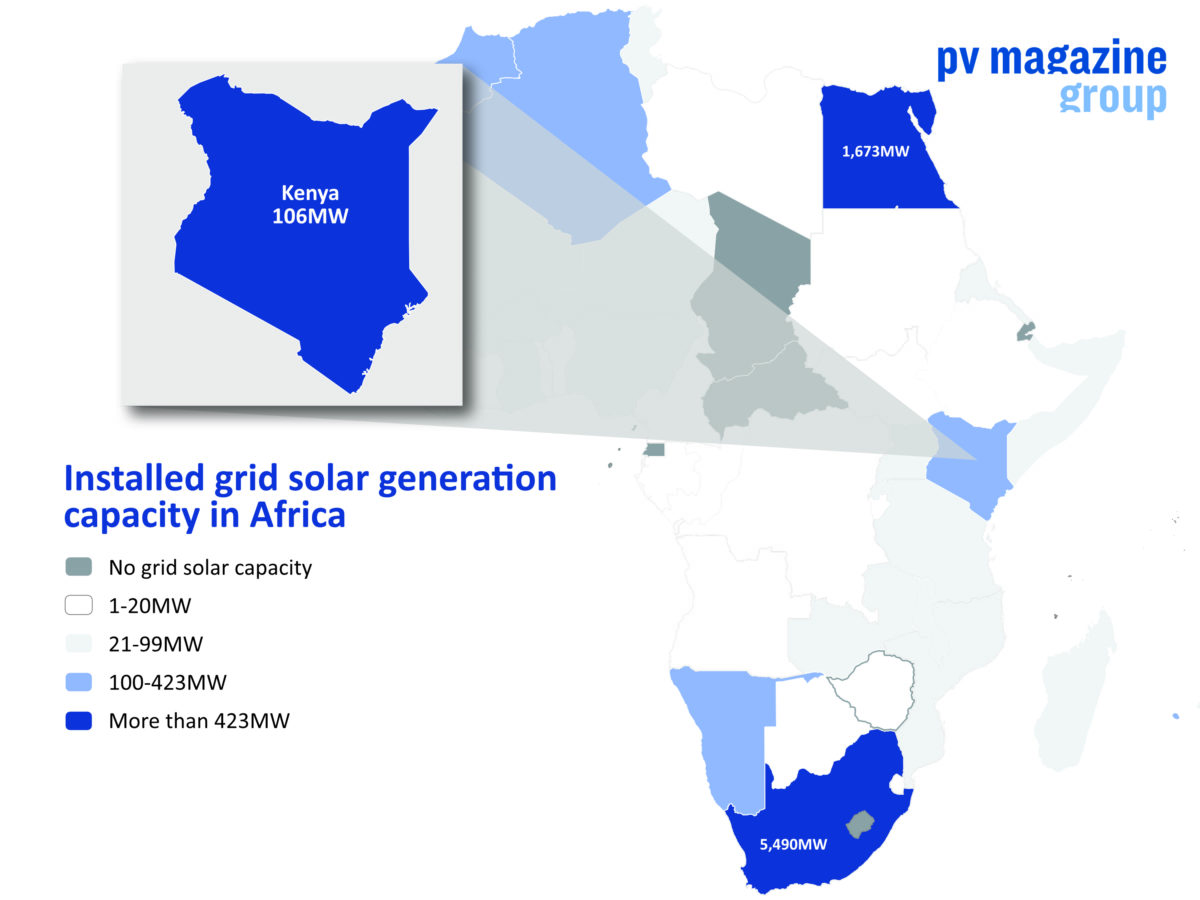The Emerging Africa Infrastructure Fund (EAIF) financed by the governments of the U.K., the Netherlands, Switzerland, and Sweden has provided a $35 million, 15-year loan towards the $87 million cost of a 40MW solar project planned in Kenya.
The EAIF, which borrows from public and private lenders to on-lend finance for renewables projects in Africa, distributed the first installment of the loan, via South Africa's Standard Bank Group, in late December.
Spanish solar company Alten Energías Renovables is developing the Kesses solar project near the town of Eldoret, near the equator in Kenya's Rift Valley, with construction expected to be complete in “spring 2022.”
The solar field, which will create up to 400 construction jobs and 15 permanent positions, will supply all the electricity it generates to national utility the Kenya Power and Lighting Company, which has signed a 20-year power purchase agreement.
As project lead financer, Johannesburg-headquartered Standard Bank will provide $41 million for the Kesses facility, including the $35 million from the EAIF, an extra debt facility, and VAT.
Sine Zulu, an investment specialist at London-based asset management company Ninety-one, which manages the EAIF, said: “The Kesses plant brings multiple benefits to Kenya's economic development. It will also play an important part in combating climate change and strengthening Kenya's recovery from Covid-19. [The] EAIF is now established as a lender of choice for renewable energy companies investing in Africa.”
This content is protected by copyright and may not be reused. If you want to cooperate with us and would like to reuse some of our content, please contact: editors@pv-magazine.com.



2 comments
By submitting this form you agree to pv magazine using your data for the purposes of publishing your comment.
Your personal data will only be disclosed or otherwise transmitted to third parties for the purposes of spam filtering or if this is necessary for technical maintenance of the website. Any other transfer to third parties will not take place unless this is justified on the basis of applicable data protection regulations or if pv magazine is legally obliged to do so.
You may revoke this consent at any time with effect for the future, in which case your personal data will be deleted immediately. Otherwise, your data will be deleted if pv magazine has processed your request or the purpose of data storage is fulfilled.
Further information on data privacy can be found in our Data Protection Policy.